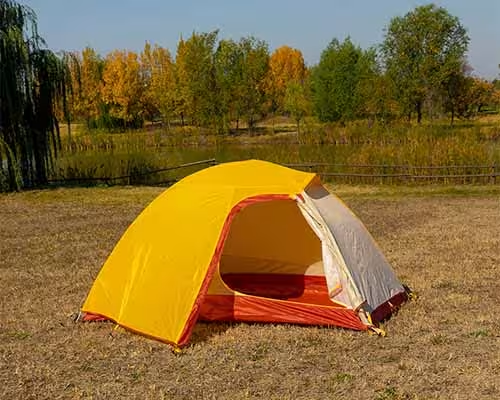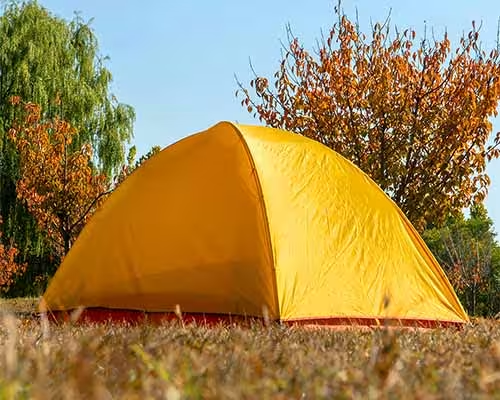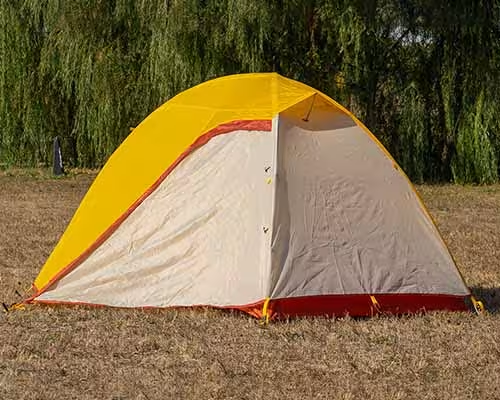Welcome to My Blog!
Before we dive into the content, I’d love for you to join me on my social media platforms where I share more insights, engage with the community, and post updates. Here’s how you can connect with me:
Facebook:https://www.facebook.com/profile.php?id=61569274896143
Now, let’s get started on our journey together. I hope you find the content here insightful, engaging, and valuable.
Table of Contents
Introduction

Venturing into the great outdoors can be a thrilling experience, but having the right equipment makes all the difference. Among all essentials, outdoors tents stand out as a top priority for anyone planning an adventure. Whether you’re hiking, camping, or setting up at a festival, the right outdoors tents provide shelter, security, and comfort. This comprehensive guide aims to help beginners understand everything they need to know about outdoors tents, ensuring a smooth start to their outdoor journeys.
Why Outdoors Tents Are Essential for Every Adventurer
When it comes to spending nights under the stars, outdoors tent are more than just an accessory—they are a necessity. They offer crucial protection against harsh weather and wildlife, ensuring your safety and comfort. Reliable outdoors tent allow you to fully immerse yourself in the outdoor experience without worries.
Key Features to Look for in Outdoors Tents
Understanding what makes a great tent will guide you toward a smart purchase. Critical features like durability, ease of use, and weatherproofing should top your checklist. Choosing well-designed outdoors tent means fewer inconveniences and a much smoother adventure.
Weather Resistance
Good outdoors tent should withstand various weather conditions, including rain, wind, and strong UV rays. Look for waterproof ratings and sturdy frames. High-quality fabric and solid construction ensure you stay dry and protected no matter where you camp.
Size and Capacity
Choosing the right size depends on how many people will be sleeping inside and whether you need extra space for gear. Outdoors tents that are slightly larger than your group can prevent overcrowding. Always account for sleeping comfort and storage space when sizing up.
Ease of Setup
For beginners, quick setup is essential. Look for outdoors tent that offer color-coded poles, pop-up designs, or clear instructions. Easy assembly saves you time and frustration, allowing you to enjoy your trip right from the start.
Ventilation
Proper airflow is critical to prevent condensation and maintain a comfortable sleeping environment. Mesh windows and vents are great features to consider. Good ventilation in outdoors tents also helps regulate temperature, especially during summer nights.
Types of Outdoors Tents for Different Adventures
Knowing the different types of outdoors tents will help you match the right one to your needs. Different styles offer unique benefits depending on the environment, trip length, and comfort requirements. Understanding these types ensures better outdoor experiences.
Dome Tents
These are highly versatile, easy to set up, and perfect for casual camping trips. Dome outdoors tents are compact and ideal for quick getaways. Their simple structure offers good wind resistance and basic protection.
Tunnel Tents
Offering more space and headroom, tunnel outdoors tents are ideal for families or longer trips where comfort matters. Their multiple-room design makes them perfect for organizing gear and living areas during extended stays.
Backpacking Tents
Lightweight and compact, backpacking outdoors tents are designed for easy carrying and quick setup after a long day of hiking. They are essential for solo travelers or minimalist adventurers looking to pack light without sacrificing protection.
Inflatable Tents
Modern and innovative, inflatable outdoors tents eliminate the need for poles and can be set up quickly by pumping air into beams. They offer stability and convenience, making them ideal for families and those new to camping.
Cabin Tents
Built for comfort and space, cabin outdoors tents resemble a small home and often come with dividers for multiple rooms. With higher ceilings and straight walls, they are perfect for large groups seeking a more luxurious camping experience.
Table: Comparing Different Outdoors Tents by Features
| Tent Type | Best For | Key Features | Weight | Setup Time |
|---|---|---|---|---|
| Dome Tent | Casual camping, beginners | Easy setup, compact storage | Medium | 5-10 minutes |
| Tunnel Tent | Family trips, longer stays | Spacious, stable structure | Heavy | 15-20 minutes |
| Backpacking Tent | Hiking, lightweight travel | Ultralight, small pack size | Very Light | 5 minutes |
| Inflatable Tent | Quick setups, innovative users | No poles, fast inflation | Medium to Heavy | 3-5 minutes |
| Cabin Tent | Group camping, luxury camping | High ceilings, multiple rooms | Heavy | 20-30 minutes |
How to Choose the Right Outdoors Tents for Your Trip
Selecting the perfect outdoors tents depends largely on the nature of your trip. A mismatch can lead to discomfort or worse, a spoiled adventure. Consider the terrain, expected weather, and how much gear and people you will accommodate.
Trip Duration
Longer trips demand more durable and comfortable tents with better weather protection and space. Outdoors tents with added amenities such as vestibules and ventilation windows are ideal for extended stays. Don’t compromise comfort for short-term savings.
Weather Conditions
If you expect harsh conditions, invest in four-season outdoors tents designed to withstand snow, rain, and wind. Look for strong pole structures and high-denier fabric. The right tent can be the difference between a comfortable night and a dangerous one.
Group Size
Never underestimate the value of extra space. Outdoors tents should comfortably fit all group members along with their gear. A tight, cramped tent can ruin morale during long trips, especially during rainy days when you spend more time inside.
Transportation Method
Backpacking requires lightweight tents, while car camping allows for heavier, more luxurious models. Always factor in your mode of travel when choosing outdoors tents to ensure you don’t burden yourself unnecessarily during your journey.
Common Mistakes Beginners Make When Buying Outdoors Tents
Learning from common mistakes can help you make a smarter purchase. A little research upfront saves you headaches later. Beginners often overlook crucial factors such as weather resistance, ease of setup, and long-term durability.
Ignoring Weather Ratings
Choosing a tent based solely on price or appearance without considering its weather resistance can lead to a miserable experience. Outdoors tents should always have reliable waterproofing and wind stability to handle unexpected weather changes.
Overestimating Size Needs
Bigger isn’t always better. Oversized outdoors tents can be heavier, harder to set up, and may not fit into tight camping spaces. Select the size based on real needs and site availability for an optimal camping experience.
Forgetting About Ventilation
Poorly ventilated tents can lead to condensation buildup, making mornings damp and uncomfortable. Outdoors tent with mesh windows, roof vents, and breathable materials ensure a fresh and dry environment inside.
Not Testing Setup Before the Trip
Always practice setting up your outdoors tent at home to ensure a smooth process at the campsite. Familiarity reduces setup time and stress, especially in unexpected weather conditions or low-light situations.
Maintenance Tips for Outdoors Tents


Proper maintenance ensures that your outdoors tent remain reliable and durable for years. Simple routines after each use protect your investment. Good care minimizes repair needs and maintains the tent’s performance.
Cleaning and Drying
Always clean your tent after each use and ensure it is completely dry before storage to prevent mold and mildew. Use mild soap and a soft brush for cleaning, and avoid aggressive chemicals that could damage the fabric.
Proper Storage
Store your outdoors tent in a cool, dry place, preferably out of direct sunlight, to avoid material degradation. Never compress it too tightly; loose rolling maintains the fabric’s breathability and integrity.
Regular Inspections
Check for any damages like tears, broken zippers, or bent poles, and repair them before your next trip. Proactive maintenance saves you from dealing with equipment failure during critical moments.
Re-waterproofing
Over time, the waterproof coating on outdoors tent may wear off. Reapply waterproofing sprays as needed to maintain protection. Regular testing during the off-season helps keep your tent adventure-ready.
Conclusion
Choosing the right outdoors tents can significantly enhance your outdoor adventures, providing comfort, protection, and peace of mind. Whether you’re heading for a weekend camping trip or planning a month-long backpacking journey, investing in quality outdoors tents is essential.
Ready to find the perfect shelter for your next adventure? Contact us today and let our experts guide you to the best outdoors tent for your needs. Explore more, worry less — your perfect outdoor experience starts now!
FAQ
What is the best material for outdoors tents?
Nylon and polyester are the most common materials, offering lightweight durability and decent weather resistance. Canvas outdoors tent are more durable but heavier, making them better suited for extended stationary camps.
How do I choose the right size tent?
Choose a tent based on the number of users plus one for extra gear storage. Outdoors tent that provide a little extra room can significantly increase comfort, especially on longer trips.
Can I use outdoors tents in winter?
Yes, but make sure it’s a four-season tent specifically designed to handle snow loads and low temperatures. Not all outdoors tent are built for extreme cold, so verify specifications carefully.
How long do outdoors tents last?
With proper care, high-quality outdoors tent can last anywhere from 5 to 15 years, depending on usage frequency and maintenance. Investing in a good model saves you money over time.
Are inflatable tents reliable?
Yes, inflatable outdoors tent are reliable and extremely easy to set up, though they may be slightly heavier than traditional pole tents. They are a great choice for beginners and family camping trips.